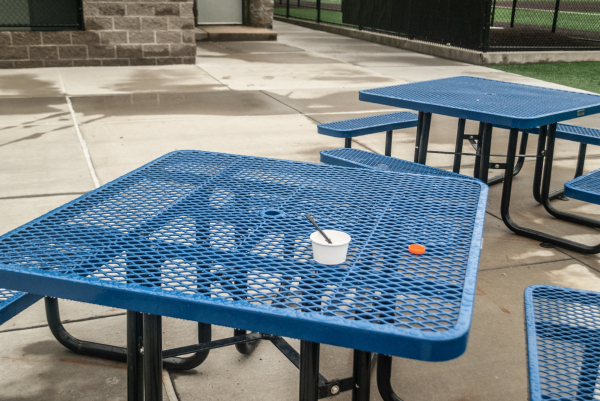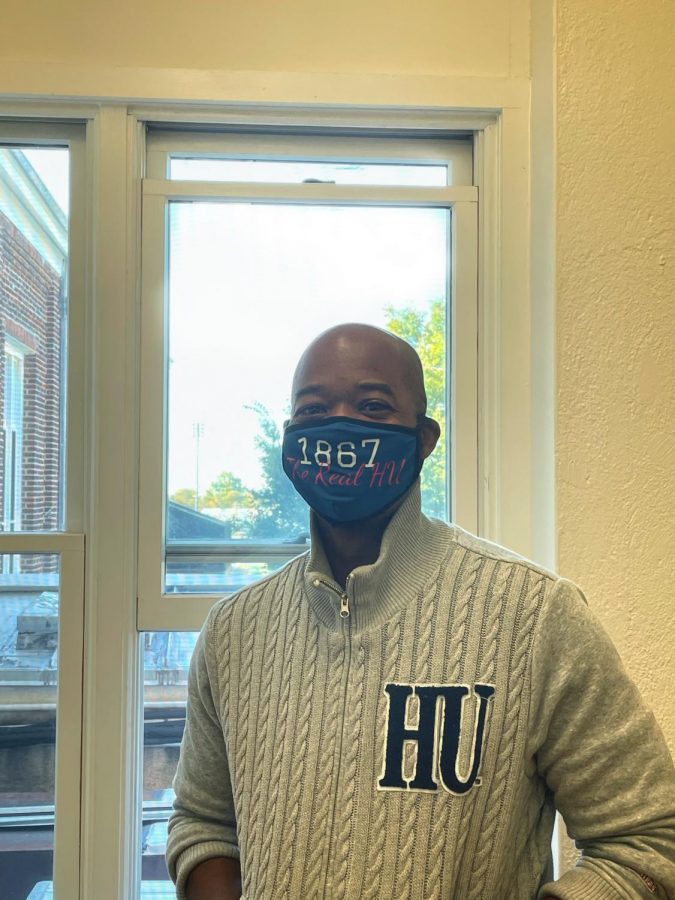The Future of DEIB at Poly
Dr. Omari Keeles
Dr. Omari Keeles, Poly’s new Director of Diversity, Equity, Inclusion and Belonging (DEIB), wants a future where his job is obsolete. He wants to involve the entire Poly community with DEIB work, so that there is no longer a need for a single person to oversee it. “My overall plan is to develop initiatives, policies and programs that will make sure that everyone has an equitable experience here at Poly. Regardless of how you identify, regardless of your background, everyone should feel like they’re a part of the Poly community,” said Keeles.
In terms of DEIB, the most noticeable change from last year is the addition of a designated 70-minute DEIB block, second period on Day 7. This block is a response to the Black Students Demanding Change organization and affinity groups’ calls for consistent, integrated time for DEIB work last year. The DEIB block will be used for affinity group meetings, with the hope that more students will join these groups if they have time set aside to attend them.
While many affinity group members and leaders are pleased to meet during the day, the strict timing of these groups has caused conflicts. Students have time to attend only two affinity groups, one in each half of the block. However, if two groups meet during the same time, or if students are in multiple groups, they are forced to choose. Jasmine Kaur, leader of the South Asian Affinity Group and Queer BIPOC group, said, “I wish the schedule could be expanded more, [so that] students with multiple groups could attend all of them.”
For students who are not a part of affinity groups, the period will host a variety of programs. In the first DEIB block, students watched Class Divide, a documentary about the socioeconomic dichotomy between Avenues School and its neighbors. Keeles is responsible for planning and facilitating the DEIB programming during this block, which will include student-led exhibitions of different cultures in the future.
Both Keeles and Kaur want to see DEIB included in Poly’s broader curriculum. “I hope for more diversification in the core courses, such as history, [with classes on] BIPOC and queer history,” said Kaur. “Students should be educated on important subjects like homophobia and racism starting from the ninth grade.” In English courses, Keeles said, “we’re [going to] not prioritize male authors, [while] in the STEM fields, the students are acknowledging the historic inequities that exist in STEM, so we’re talking about non-men and people of color.”
DEIB is even being included in the art curriculum. The Chair of the Visual Arts Department Laura Coppola said “[In art,] we explore world cultures from prehistory to contemporary art, so we are really exploring how people the world over have used art as a vehicle to uphold or resist systems of power and embrace or reject cultural norms.” Specifically, students in ceramics classes “consider the patterns and symbols of Asian and Native American cultures and reinvent them with their own creative context,” while students in Art and Design engage in “discussion around the socio-political implications around access and the ‘commercialization’ of art.”
Poly’s next steps for DEIB will focus on student engagement. For example, Keeles plans to set up a student ambassador program, where students across all grades can be involved. These students will work with Keeles to bring their perspectives to Poly’s DEIB work, as well as helping to plan and facilitate events.
With changes to the curriculum, affinity groups, the DEIB block, and more ways than ever before for students to get involved, the administration and student leaders hope that DEIB will become an ever-present part of the Poly experience. Keeles’ ultimate goal is for his position to, as he said, “no longer exist, [because] Poly will be a well-oiled machine, and there will be no need for someone specifically to do diversity, equity, inclusion and belonging because that will be so embedded in Poly’s culture.”

Throughout his time at the Polygon, William has served as the Photography Editor, the Features Editor, and, this year, as the Opinions Editor. He has enjoyed...



























